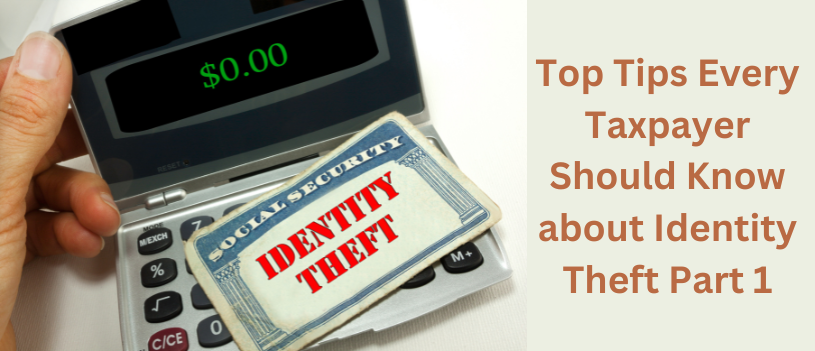The IRS wants you to know about identity theft so you can avoid becoming the victim of an identity thief. They have a total of 13 tips. Below are the first 6.
Identity theft often starts outside of the tax administration system when someone’s personal information is unfortunately stolen or lost. Identity thieves may then use a taxpayer’s identity to fraudulently file a tax return and claim a refund. In other cases, the identity thief uses the taxpayer’s personal information in order to get a job. The legitimate taxpayer may be unaware that anything has happened until they file their return later in the filing season and it is discovered that two returns have been filed using the same Social Security number.
1. The IRS does not initiate contact with taxpayers by email to request personal or financial information. The IRS does not send emails stating you are being electronically audited or that you are getting a refund.
2. If you receive a scam e-mail claiming to be from the IRS, forward it to the IRS at [email protected].
3. Identity thieves get your personal information by many different means, including:
* Stealing your wallet or purse
* Posing as someone who needs information about you through a phone call or e-mail
* Looking through your trash for personal information
* Accessing information you provide to an unsecured Internet site.
4. If you discover a website that claims to be the IRS but does not begin with ‘www.irs.gov,’ forward that link to the IRS at [email protected].
5. To learn how to identify a secure website, visit the Federal Trade Commission at www.onguardonline.gov/tools/recognize-secure-site-using-ssl.aspx.
6. If your Social Security number is stolen, another individual may use it to get a job. That person’s employer may report income earned by them to the IRS using your Social Security number, thus making it appear that you did not report all of your income on your tax return. When this occurs, you should contact the IRS to show that the income is not yours. Your record will be updated to reflect only your information. You will also be asked to submit substantiating documentation to authenticate yourself. That information will be used to minimize this occurrence in future years.
I’ll post the remaining 7 tips in the next two posts.
I hope you find this information helpful.
Candy
